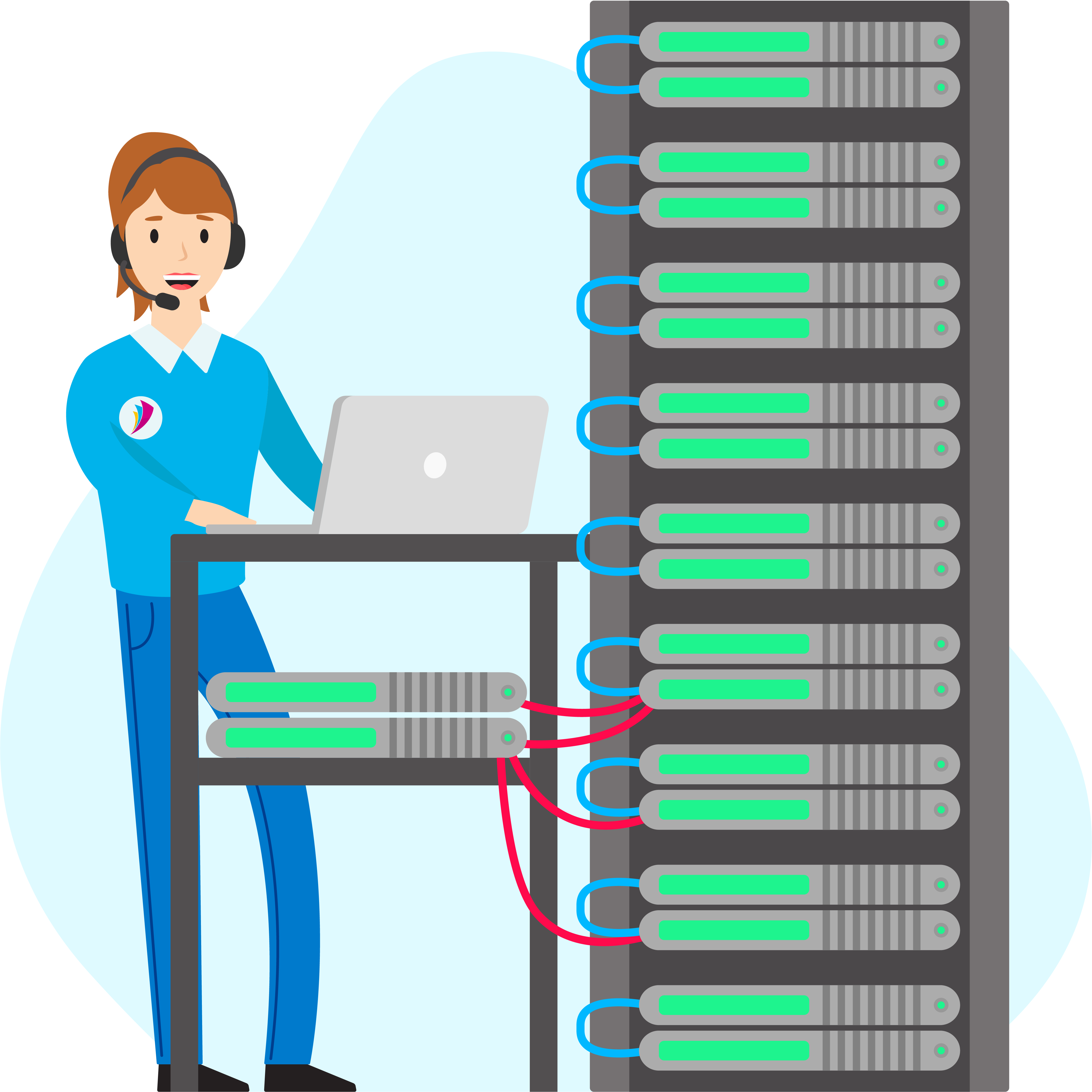
If you’re asking yourself the question, “Do I need web hosting?” then hopefully, by the end of this article, you’ll have your answer and a better understanding of what website hosting is and why you would ever need it. You can check our product page or continue reading for detailed information on business website hosting.
You only really need a web hosting service if you intend to add a website to your online presence. Sometimes you can get away with not having a web hosting service, depending on what you want to do.
For example, if you need an email account, you only need a hosting email service, such as our dedicated email hosting or Google Workspace. Or, if you want to redirect your domain name to another website or service, you can just set up a redirect.
Some great reasons to need website hosting would be:
- Setting up a small business website with some information about you and your business and contact details.
- You can use an eCommerce website to sell products or services over the internet.
- Creating a blog: To share your personal experiences and insights, talk about different topics, or advertise your business’ products and services.
Another thing to note here is that a common misconception we find some people may have is that when you set up a website using a service like Squarespace, Wix or Weebly, you also need a website hosting service. This isn’t the case because that company (e.g. Squarespace, Wix or Weebly) hosts the website for you. You need the domain name and to point/link that domain name to your Squarespace, Wix or Weebly website.
What is a web hosting service?
Web hosting can seem like a complicated concept to some, so to break things down, let’s liken web hosting to an apartment building. The building is like a server and the street address in your domain name. Like a tenant renting an apartment, web hosting customers will rent space on a server.
Like a luxury apartment building, VentraIP servers include the highest quality amenities, which enhance security, performance, and service. Once you have your space, it is over to you to decide what you want to do it with; furnish your server space with a blog, business site, or even an e-commerce store. The possibilities are limitless.
We offer various shared web hosting services to help you get started, such as Business Hosting, Custom Hosting and WordPress Hosting.
What is a domain name?
The domain name is the name or address of your website. An excellent example of a domain name might be google.com or ventraip.com.au. You’ll need to register your domain name to have an address people can use to access your website. If you’re interested in searching for the perfect domain name, you can do so on our website.
How do they relate?
The domain name “points to” or “links to” the hosting service where your website is stored. So when someone visits your-domain-name.com, the website on your web hosting service pops up.
Some web hosting technical terms?

Every industry comes with its terminology, and unfortunately, the web hosting industry uses some reasonably obscure and lesser-known terms to describe different things. We’ve made a small list of the common phrases and words that are used to help navigate through the features of a web hosting plan:
- The Cloud: What does it mean?
We’re going to let you in on a bit of a secret. It’s honestly just a marketing term. Every website or online service you use is just running on a server located in a data centre somewhere in the world. The word “cloud” makes that concept super easy to explain. - CMS: It stands for Content Management System
A CMS is a software you use to build a website and website content. An excellent example of a CMS is WordPress. - Disk Space: The amount of storage made available to you
Your website and other content will take up space on the server. Typically your web hosting provider will set a limit on your disk space. - CPU: The brawn for your web hosting service
When someone visits your website, your web hosting service needs to process the request. This will take up some of the CPU allowance assigned to your web hosting service. The more visitors you get, and the heavier your website is, the more CPU you will use. - Memory (RAM): The brains of your web hosting service
Much like CPU, when someone visits your website, you will need this to handle the request. However, the amount of Memory you have will dictate how many requests your website can handle or how much it can do at one time.
That’s it!
We hope we’ve answered most, if not all, of your questions regarding what web hosting and domain names are and whether or not you need web hosting.
Want to know more? Feel free to read our article about what goes on behind the scenes of a web hosting service.

